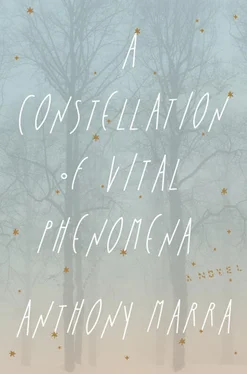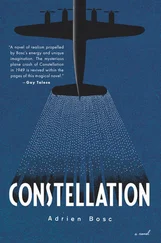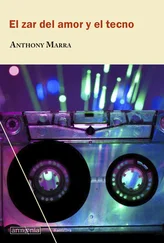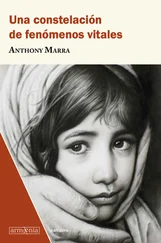Within the variations of beige composing the corridors of State Secondary School No. 28, the spotlight of attention expanded. As an ethnic Russian she belonged to the national minority that ran the republic. Her ethnic status propelled her into the elite echelons of adolescent popularity, where a personality cult had arisen around her, fueled by the adoration of obsequious underclassmen. In Moscow, Gorbachev’s reforms barreled the Soviet Union toward the precipice, but in a far-flung city in a farther-flung republic, the old rules still applied. Ethnic Russians controlled all major positions of power, from headwaiters to heads of government, and the two-hundred-year history of imperial order reiterated itself within State Secondary School No. 28. With magnanimity, Natasha accepted her rank. She wasn’t nearly as vicious as the girls who, in florid Cyrillic on the inner flap of their homework planners, graded boys on a twelve-point scale. Nor did she hold herself above the roiling sea of lunchroom gossip by pushing others under. Years earlier, when she was still young enough to need a good-night kiss, her father would plant his chapped lips on her cheek and, in a whisper of sweet tobacco, say, “Sweet dreams, my sweet tsarina.” Even after she outgrew good-night kisses, she liked to imagine herself as the long-lost grandchild of Grand Duchess Anastasia Nikolaevna, and acted in a manner befitting a wise and humble monarch.
It was this — her ethnicity as a Russian, the stalwart minority defending the borders of Western civilization from the barbaric Muhammadans — that let her slip through her adolescent years with freedoms her Chechen classmates didn’t enjoy. She could harbor lascivious thoughts of Ivan Yakov — a man her sister would revive three times in the second war — who was far more handsome than any literature teacher had a right to be. She could shave her legs without worrying if a prudish deity would smite those parallel beams of smooth skin. Overnight, it seemed, electrical lines were laid in her veins as she realized that the awkward, self-conscious boys around her were growing into men. The complications of puberty weren’t further complicated by culture or religion. Only when comparing herself to her classmates, many of whom were subject to arranged marriages, did she come to understand that in Chechnya gravity pressed upon women with heavier hands. Her Russianness exempted her from its grip, and so yes, often she floated.
Though Russian, she’d never been north of the Chechen border. Her parents had been born in 1930s Moscow and had grown up in communal flats four blocks away from each other. They took the same buses, attended the same primary school, spoke an accent flavored by the same fog, ate eggs laid by the same chickens, watched the same setting sun impale itself on the bronze spire of the Central Pavilion of the All-Russia Exhibition Center. They each lost relatives to Stalin’s purges. NKVD agents wearing uniforms the blue of a cloudless summer sky would stride into the apartment block past midnight, and the next morning residents would strain their tea without mentioning the scream-pierced night. Her parents blamed Stalin personally for the purges, and Natasha’s state-approved history text confirmed that Stalin, and only Stalin, bore responsibility. But the terrible past of nighttime disappearances was locked within the pages of that history book; she never imagined she would one day disappear as easily as her forefathers.
In 1946 news spread of the deportation of Chechens and the need for ethnic Russians to resettle the empty republic. Her father was fourteen when he last drank a glass of rusty Moscow tap water. Her mother, eight. Trains carried them over the war-sickened land. They arrived in Grozny and stayed two weeks in a drafty university auditorium, sleeping on bleachers before receiving a residency assignment to Volchansk. They journeyed to the city by the same bus, two days apart. Natasha’s mother and father each felt so lonesome in this silent country. They didn’t believe they would ever find someone who had seen what they had seen, felt what they had felt. Twenty-one years after the end of the Great Patriotic War, they waited beside each other in a bread line. Their small talk surged to revelation. Neither could believe they had shared the same primary school, tap water, and sunset from adjacent apartment blocks. Neither imagined they would someday share two daughters: one beautiful, the other brilliant.
Though she was the elder, Sonja was always thought of as Natasha’s sister, the object rather than subject of any sentence the two shared. She walked alone down the school corridors, head sternly bent toward the stack of books in her arms. To Natasha she was the Π-letter volume of the Large Soviet Encyclopedia: wide and filled with knowledge no normal person would ever need. On weekend nights, when Natasha returned from the cinema or discotheque, she would find a thin bar of light glowing beneath the door of her sister’s room, and if she put her ear against the closed door, she would hear the whisper of a page turned every forty-five seconds. She believed Sonja to be a genius in the classical mold: a single great streak of lightning in an otherwise muddled sky. In all likelihood, Sonja had more academic journal subscriptions than friends. She could explain advanced calculus to her fifth-form algebra teacher but couldn’t tell a joke to a boy at lunch. Even in the summer months, she had the complexion of someone who spent too much time in a cellar.
Everyone knew Sonja was destined for great things, but no one knew what to do with her until then. Even in academia, her natural habitat, she was an exotic species. Though her Russianness gave her certain dispensations, the idea that a young woman of any ethnicity could so excel in the hard sciences was a far-fetched fantasy. Their parents encouraged her at a distance. Neither understood the molecular formulas, electromagnetic fields, or anatomical minutiae that so captivated her, and so their support came by way of well-intentioned, inadequate generalities. Even after Sonja graduated secondary school at the top of her class and matriculated to the city university biology department, their parents found more to love in Natasha. Sonja’s gifts were too complex to be understood, and therefore less desirable. Natasha was beautiful and charming. They didn’t need MDs to know how to be proud of her.
Sometimes, while struggling to earn average marks, Natasha thought herself the only person in Volchansk who understood and envied Sonja for the wonder she was. Her existence was so narrow, her energies so focused, she lived like a nail driving through the surface of daily routines and disappointments. When, in May 1989, Natasha needed to receive a three on her final chemistry exam to graduate from secondary school, she forced herself to ask Sonja for help. They sat at the kitchen table. Sonja opened the textbook and frowned at the landscape of unhighlighted text. She didn’t comment, didn’t put her sister down in any way, but simply said, “Let’s start at page one.” Natasha would always remember that.
She passed the exam, but she wasn’t admitted to a single university in Chechnya — probably because she didn’t apply. She wasn’t stupid, not even academically — she received top marks in history class, and at that point knew more English than Sonja — but after nineteen years living next to the searchlight of her sister’s intellect, Natasha felt ready to point her own little torch in a different direction. Instead of a university acceptance letter, she received a secretarial position at the Volchansk office of Grozneft, the Chechen branch of the Soviet Oil and Gas Ministry, working for a leering, bloated man who assured her that fifteen typed words per minute were more than sufficient. Natasha kept the nails of her index fingers filed a half centimeter shorter than the others, and from eight in the morning to five at night she punched out reports on a black-ribboned typewriter. She worked in an office painted the color of cloud cover, but even in the ministry’s somber shades, she felt all the exhilaration and uncertainty of the restructuring world. The Berlin Wall collapsed and soon the Soviet Union began to follow. Autonomous republics fell like pebbles from a crushed boulder. Anesthetically dull oil reports suddenly pulsed with significance. Chechen fields produced a relatively modest thirteen million barrels per year, but most of the region’s oil ran through the republic’s refineries. Ninety percent of Soviet aviation fuel was refined in Chechnya, along with much of the automotive-grade petroleum. With shortsightedness typical of a country whose first step in building an economy was to kill all the economists, the U.S.S.R. had built its energy production infrastructure on the far side of Russia’s borders. When Azerbaijan declared independence, Moscow lost its oil-drilling-equipment assembly. When Kazakhstan and Turkmenistan left, they took extensive oil and natural-gas reserves. The sunken treasure of the Caspian could have lit Moscow for a thousand years, and that too was lost. In the urgent memos crossing her desk, Natasha read estimates of the Caucasus’ total recoverable reserves that varied between twenty-five and a hundred billion barrels, the majority of which resided in the newly independent states, and the only available pipeline to convey Caspian oil from Baku to European markets ran straight through Chechnya. Then, a miracle. She began to enjoy her work. She read records of pipeline efficiency, the crude production rates, reducing the aggregate data into easily digested summaries, and, like an oracle that envisions but cannot intervene, she saw the prosperity of an independent Chechnya.
Читать дальше











